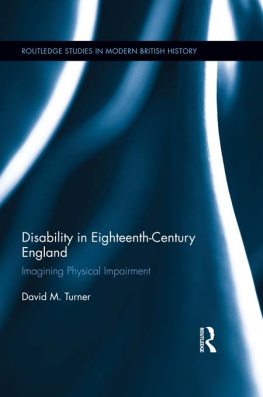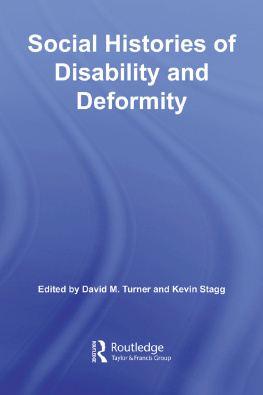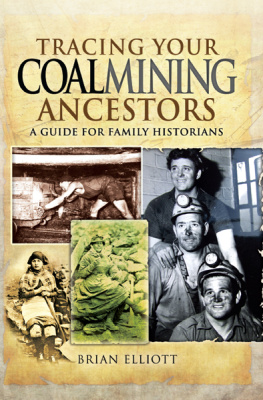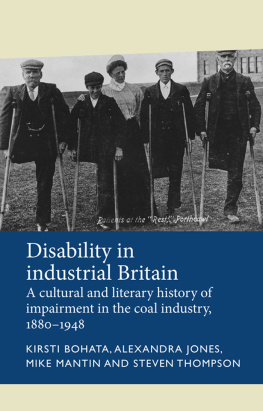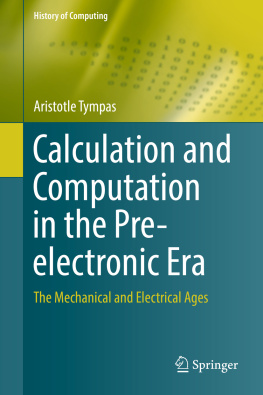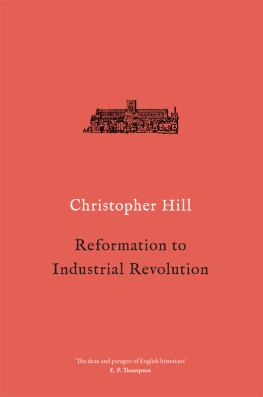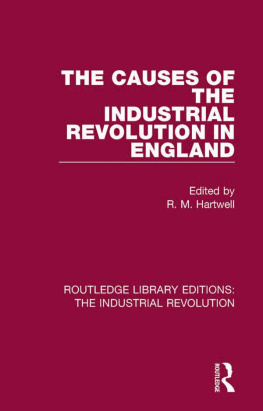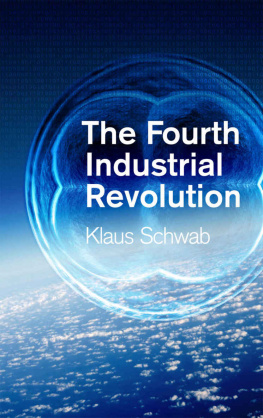
DISABILITY IN THE INDUSTRIAL REVOLUTION
Series editors
Dr Julie Anderson, Professor Walton Schalick, III
This new series published by Manchester University Press responds to the growing interest in disability as a discipline worthy of historical research. The series has a broad international historical remit, encompassing issues that include class, race, gender, age, war, medical treatment, professionalisation, environments, work, institutions and cultural and social aspects of disablement including representations of disabled people in literature, film, art and the media.
Already published
Deafness, community and culture in Britain: leisure and cohesion, 19451995
Martin Atherton
Rethinking modern prostheses in Anglo-American commodity cultures, 18201939
Claire L. Jones (ed.)
Destigmatising mental illness? Professional politics and public education in Britain, 18701970
Vicky Long
Intellectual disability: a conceptual history, 12001900
Patrick McDonagh, C. F. Goodey and Tim Stainton (eds)
Fools and idiots? Intellectual disability in the Middle Ages
Irina Metzler
Framing the moron: the social construction of feeble-mindedness in the American eugenics era
Gerald V. OBrien
Recycling the disabled: army, medicine, and modernity in WWI Germany
Heather R. Perry
Worth saving: disabled children during the Second World War
Sue Wheatcroft
DISABILITY IN THE INDUSTRIAL REVOLUTION
PHYSICAL IMPAIRMENT IN BRITISH COALMINING, 17801880
David M. Turner and Daniel Blackie
Manchester University Press
Copyright David M. Turner and Daniel Blackie 2018
The rights of David M. Turner and Daniel Blackie to be identified as the authors of this work have been asserted by them in accordance with the Copyright, Designs and Patents Act 1988.
Published by Manchester University Press
Altrincham Street, Manchester M1 7JA
www.manchesteruniversitypress.co.uk
British Library Cataloguing-in-Publication Data
A catalogue record for this book is available from the British Library
ISBN 978 1 5261 1815 8 hardback
ISBN 978 1 5261 2577 4 open access
An electronic version of this book is also available under a Creative Commons (CC-BY-NC-ND) licence, thanks to the support of the Wellcome Trust
First published 2018
The publisher has no responsibility for the persistence or accuracy of URLs for any external or third-party internet websites referred to in this book, and does not guarantee that any content on such websites is, or will remain, accurate or appropriate.
Typeset in 10/12pt Arno Pro by
Servis Filmsetting Ltd, Stockport, Cheshire
In memory of Anne Borsay
Contents
You know a subject has achieved maturity when a book series is dedicated to it. In the case of disability, while it has co-existed with human beings for centuries the study of disabilitys history is still quite young.
In setting up this series, we chose to encourage multi-methodologic history rather than a purely traditional historical approach, as researchers in disability history come from a wide variety of disciplinary backgrounds. Equally disability history is a diverse topic which benefits from a variety of approaches in order to appreciate its multi-dimensional characteristics.
A test for the team of authors and editors who bring you this series is typical of most series, but disability also brings other consequential challenges. At this time disability is highly contested as a social category in both developing and developed contexts. Inclusion, philosophy, money, education, visibility, sexuality, identity and exclusion are but a handful of the social categories in play. With this degree of politicisation, language is necessarily a cardinal focus.
In an effort to support the plurality of historical voices, the editors have elected to give fair rein to language. Language is historically contingent and can appear offensive to our contemporary sensitivities. The authors and editors believe that the use of terminology that accurately reflects the historical period of any book in the series will assist readers in their understanding of the history of disability in time and place.
Finally, disability offers the cultural, social and intellectual historian a new take on the world we know. We see disability history as one of a few nascent fields with the potential to reposition our understanding of the flow of cultures, society, institutions, ideas and lived experience. Conceptualisations of society since the early modern period have heavily stressed principles of autonomy, rationality and the subjectivity of the individual agent. Consequently we are frequently oblivious to the historical contingency of the present with respect to those elements. Disability disturbs those foundational features of the modern. Studying disability history helps us resituate our policies, our beliefs and our experiences.
Julie Anderson
Walton O. Schalick, III
This book has been written as part of the Wellcome Trust Programme Award in Medical History, Disability and Industrial Society: A Comparative Cultural History of British Coalfields, 17801948 [grant number 095948/Z/11/Z]. It draws on the work of the research team: Professor Anne Borsay, Professor David Turner, Professor Kirsti Bohata, Dr Mike Mantin and Dr Alexandra Jones (Swansea University); Dr Daniel Blackie (University of Oulu); Dr Steven Thompson and Dr Ben Curtis (Aberystwyth University); Dr Vicky Long (Glasgow Caledonian University) and Dr Victoria Brown (Northumbria University/Glasgow Caledonian University); and Professor Arthur McIvor and Dr Angela Turner (Strathclyde University).
We thank the Wellcome Trust for its generous support of this project. In addition to the collegial and inspiring support from the research team, we are also grateful for the encouragement we have received from members of the projects Advisory Board and Public Engagement Panel, and the many archivists, librarians and curators who have helped us obtain the sources we use in this book. Swansea Universitys Department of History and Classics provided a friendly and stimulating environment in which to develop our ideas and we thank all our colleagues there for making it such a lovely place to work. The staff of the universitys Research Institute for Arts and Humanities provided much appreciated support and helped us greatly in our enjoyable and successful public engagement activities. The College of Arts and Humanities granted David a period of sabbatical leave to work on this book. Thanks also to the many scholars who have helped us sharpen our analysis with their comments at conferences and seminars over the last few years and have made participating in those meetings such a lot of fun.
David would like to thank John Spurr, Elaine Canning and colleagues in the College of Arts and Humanities, and staff at the Wellcome Trust for supporting him as project leader, particularly following the death of Anne Borsay in 2014. Angela John, Alun Withey and Andy Croll have all provided much needed encouragement and shared the insights of their own research. Conversations with the community of disability historians and students at Swansea University have helped to shape the ideas of this book further. He is grateful to Lesley Hulonce, Patricia Skinner, Irina Metzler, Gemma Almond, Teresa Hillier, Pallavi Podapati and Rachel Wilks for many stimulating discussions about disability and difference. The love of his wife Carys and son Dyfan, has sustained him through the process of writing this book and he thanks them for their patience and support.


